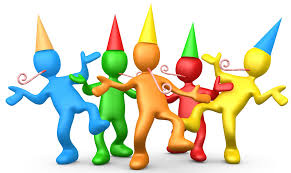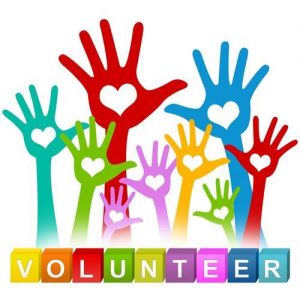
We hope you had a blessed 4th of July
- another term for Forth of July
- a day celebrating the anniversary of national independence

Is our………..
Paint Crew

&
New Town Crew




Volunteerism: Health Benefits & Common Activities
Many people volunteer here and there throughout the year, usually by donating money, canned foods, preparing or serving meals, or through a work activity like cleaning a park on Earth Day. If you are hoping to make volunteerism a bigger priority in your life, here are a few things to keep in mind!
Volunteerism offers big health benefits!
- Helping others really is the gift that keeps on giving! Studies have shown people who volunteer have a longer lifespan, improved heart health, lower cholesterol, and reduced anxiety & depression. Get active in your community to enhance your overall well being!
Go where you’re needed…
- The most common volunteering activities are: fundraising or selling items to raise money, tutoring or teaching, and collecting, preparing or distributing food.
If you’re looking to get involved and these areas are already well-served in your community, consider other places you can focus your time on like mental health facilities, hospitals, recovery shelters or retirement homes. These are all great places to help out.
Help isn’t just for the holidays.
- 72% of volunteers work with only one organization each year. What does this mean exactly? To look at the positive, it means there are many people who do long, sustained work with a volunteer organization each year. That’s great. On the other hand, it also reflects the one-and-done volunteers out there, those who donate time and resources around the holidays. If that sounds familiar, that is ok-anything helps. Try considering organizations you could join or different ways to work volunteer time into your weekly or monthly routine!
Let’s review some ways to support your community…
- Donate resources: donate clothes, household goods, books, food or anything else that you think could help someone in need.
- Donate your time: walking dogs at the animal shelter would really help, as well as reading stories or just spending time with the elderly.
- Volunteer at a food pantry: visit www.foodpantries.org to find the nearest pantry!
- Head to the YMCA: you can help with children or adults, teach a course or coach a sports team! Check your local YMCA website to get started.
- Care for the homeless: Clothes, especially winter gear, socks, shoes, linens and food are always needed.
- Support local events: keep an eye out for flyers, news reports or advertisements for any local events that raise funds for charities. This is an opportunity to support local artist with your patronage or maybe hang a few posters to help spread the word!

- breaking the deadly cycle of insomnia can be a very difficult challenge
- seeking to “sleep well” individuals begin experimenting with OTC sleep aids until the “magical pill/syrup” is discovered
- once the sleep aide that provides several hours of sleep is found, repetitive use often begins
- this is when OTC sleep aides can become hazardous to your health
OTC sleep aides are intended for OCCASIONAL USE ONLY, not daily use.
Important Precautions:
- Diphenhydramine (Benadryl, Aleve PM, Sudafed, etc.) is a sedating antihistamine found in many sleep aides. Side effects can include dry mouth, blurred vision, urinary retention, loss of coordination, mental confusion, dizziness, headaches, jitteriness, & physical weakness.
- Doxylamine Succinate (Unisom) is a sedating antihistamine with very similar side effects as diphenhydramine.
- Melatonin is a hormone that helps control your “sleep-wake cycle”. OTC pill form of Melatonins side effects include increased male breast size, reduced sperm count, increased blood glucose & insulin levels and increased blood pressure levels. Do NOT take Melatonin if you have an autoimmune disease, seizure disorder or depression.
- NyQuil (contains Dosylamine Succinate) & ZzzQuil (contains Benadryl) depresses the central nervous system and should never be taken with alcohol. Taking too much of either of these with alcohol could lead to serious side effects such as respiratory depression or even death.
Sleep plays a vital part in health, energy levels and day to day functioning. Here are a few tips to help improve your sleeping habits:
- minimize light & sound
- get comfortable by cooling the room
- manage stress with aromatherapy or by playing relaxing sounds/music
- read
- practice relaxation techniques
If insomnia is occurring on a frequent basis, see your physician.

To Our Courage To Care Winners
